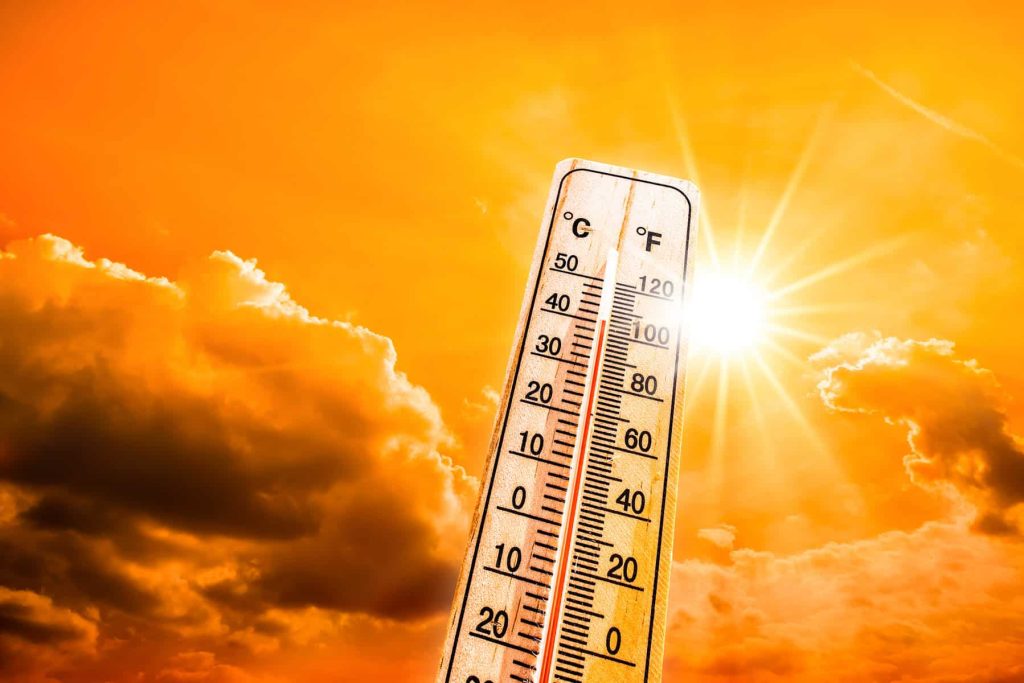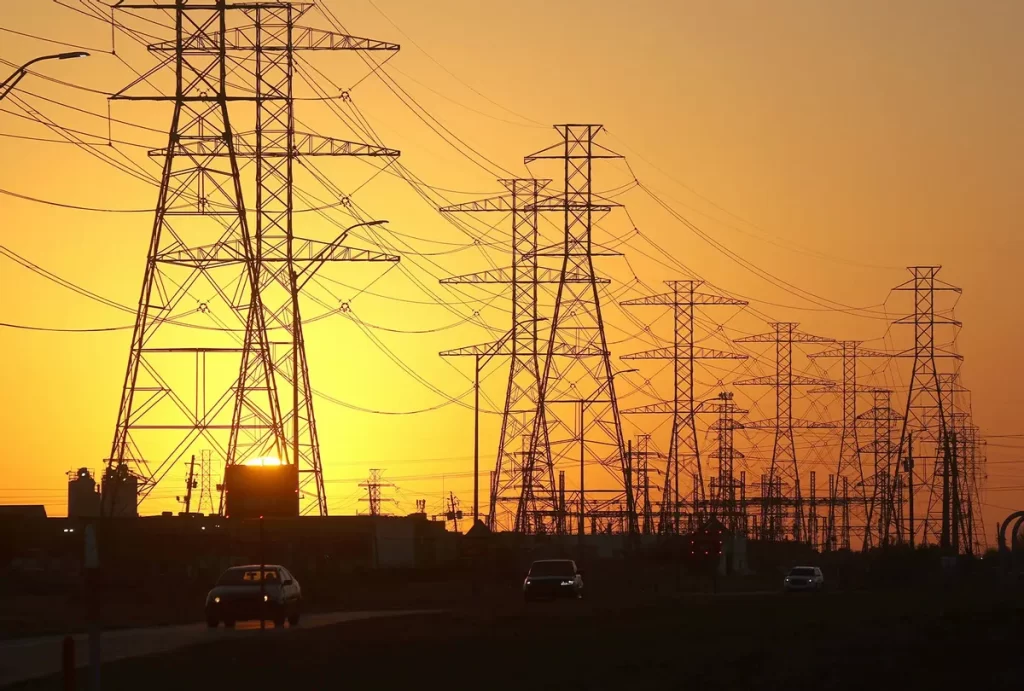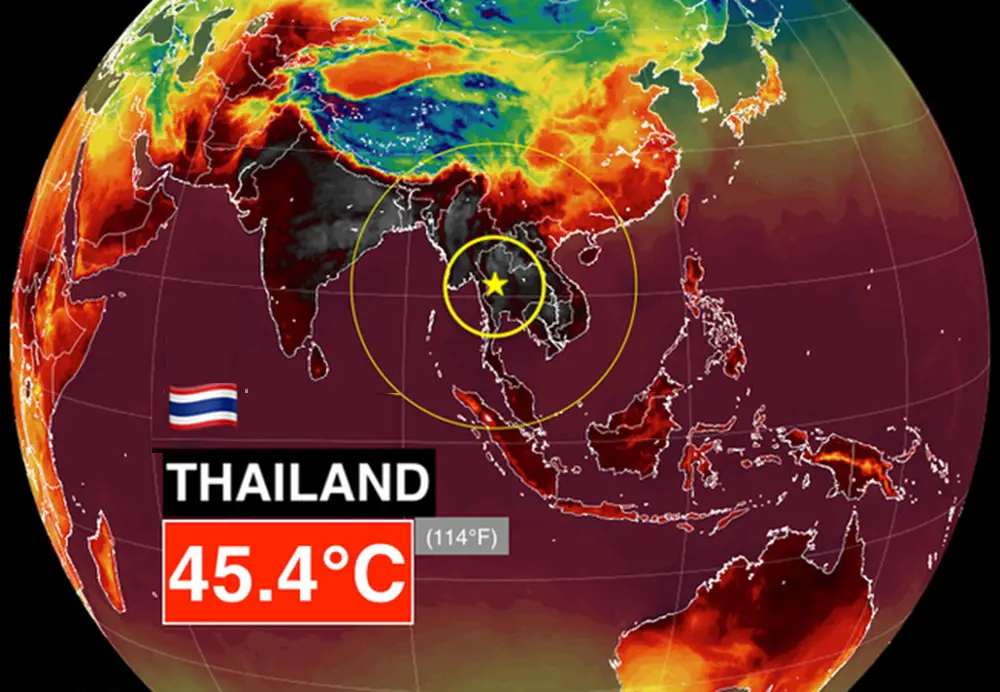The Meteorologist Department in Thailand issued new warnings about unusually hot weather over the weekend, while the health department reported that heatstroke has already killed at least 32 people.
Bangkok city officials issued an excessive heat warning, predicting that the heat index would exceed 44 degrees Celsius. Temperatures in the concrete sprawl of Thailand’s capital reached 43 degrees Celsius on Friday, with similar levels expected next week.
Bangkok’s environment department warned that the heat index was at a “extremely dangerous” level.
A wave of very hot weather has pounded areas of South and Southeast Asia this week, causing schools to close and worshippers to pray for rain. Authorities in northern Thailand’s Udon Thani province have also warned of high temperatures throughout the weekend.
The mercury is set to rise to unprecedented levels, with temperatures ranging between 43 to 45 degrees Celsius in certain provinces. Thailand’s health ministry reported late Friday that 32 people died of heatstroke so far this year, compared to 37 in all of 2023.
Direk Khampaen, deputy director-general of Thailand’s Department of Disease Control, said officials were recommending the elderly and those with underlying medical issues, such as obesity, to stay indoors and drink plenty of water.

Thailand’s Hottest Month
April is generally the hottest month of the year in Thailand and other Southeast Asian countries, but this year’s El Nino weather trend has aggravated the situation.
Thailand has experienced a heatwave this week, and high temperatures are expected to persist across much of the country until at least April 30. Temperatures of up to 44.2 degrees Celsius have been reported in parts of northern Thailand in recent days, and the extreme heat is anticipated to persist.
The northern province of Lampang reported a temperature of 44.9 degrees Celsius.
Across the border in Myanmar, the temperature reached a scorching 45.9 degrees Celsius on Wednesday, with more of the same forecast the next week.

Rising Energy Costs
Energy demand has risen to record levels as a result of the heatwave, putting additional strain on the power grid and perhaps leading to supply concerns throughout the protracted period of high temperatures, officials say.
The prolonged period of severe heat and dry weather may create excellent conditions for wildfire propagation throughout the region.
Thailand’s heatwave also endangers vulnerable groups, including the elderly, children, pregnant women, and people with respiratory problems, due to an increased risk of heat stroke or heat exhaustion from extended exposure to high temperatures.
During severe heatwaves, these health hazards may also affect reasonably healthy people. In addition to having a substantial impact on athletes and those who work outside, high temperatures can cause problems for persons who utilize public transportation.
During rush hour, some passengers may require hospitalization due to a shortage of air conditioning and cramped automobiles.
High temperatures can damage road surfaces, and overheated vehicles can exacerbate traffic problems in congested urban areas.
Commercial trucking interruptions may occur as high temperatures put additional stress on vehicles, increasing the likelihood of tire blowouts. Regional airports are unlikely to see major flight interruptions, however general aviation problems are conceivable, and some air freight carriers may limit cargo loads.
High temperatures may increase demand for power, resulting in localized brownouts or blackouts, increasing hazardous conditions when air conditioning is no longer available.
Keep an eye on the local media for weather updates and other relevant information. During heatwaves, stay indoors in air conditioning whenever feasible. If outdoor activities are required, take regular breaks in shady areas and avoid activity during the hottest hours of the day.
Stay hydrated by consuming plenty of water. Avoid alcoholic beverages that dehydrate you; instead, consume bottled or boiling water. Wear loose, light-colored clothing. Cotton fabrics are cooler than synthetics.
If you notice signs of heat exhaustion or heat stroke, seek medical attention right once. Charge battery-powered gadgets in the event of an extended power outage.






